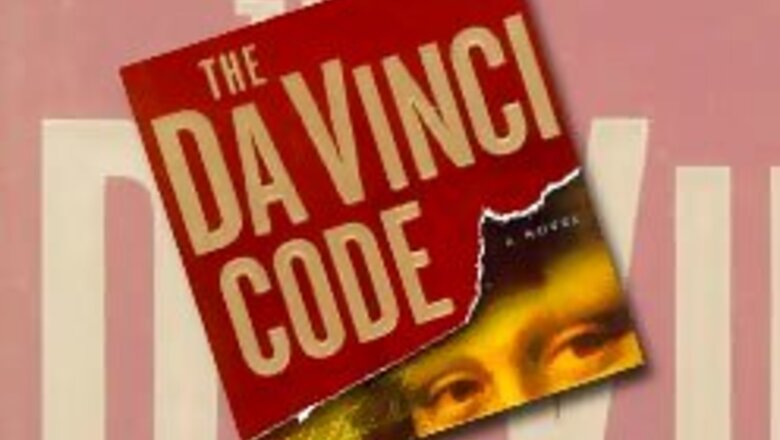
views
London: The copyright case brought by two historians who accuse author Dan Brown of plagiarising their work in the novel The Da Vinci Code drew to a close in court on Monday, and the presiding judge said he hoped to issue a ruling by early April.
The case lasted for more than three weeks and the closely watched proceedings consisted of heated debates over the Merovingian monarchy, the Knights Templar and Jesus' bloodline.
The Da Vinci Code, one of the most successful novels of all time with sales of over 40 million copies, uses some of the same ideas as The Holy Blood and the Holy Grail, a 1982 work of historical conjecture by authors Michael Baigent and Richard Leigh.
Both books raise the possibility that Jesus had a child by Mary Magdalene, that she fled to France after the Crucifixion and that Christ's bloodline survives to this day. They also associate Magdalene with the Holy Grail.
Baigent and Leigh, who have been in court throughout the case, are suing Brown's British publisher, Random House, which also happens to be their own.
The third author of the Holy Blood book, Henry Lincoln, is not part of the legal action.
In his closing submission, Rayner James tried to play down fears that victory for the historians would limit the extent to which novelists can draw on sources, historical or otherwise.
Brown, 41, admitted he read the work but only after he had sent the synopsis for The Da Vinci Code off to his publishers, Random House, in January 2001.
Brown's wife, Blythe emerged as a key figure in the case, collecting research material before her husband wrote the novel and arguing for the inclusion of some of its most important themes.
Rayner James criticised Brown for being vague about dates and sources. He also admitted his own client Baigent had been "a poor witness."
The historians argue that Blythe must have referred to the Holy Blood book before Brown wrote his synopsis for "The Da Vinci Code" in January 2001, contrary to his witness statement.
The losing side in the case faces over $1.75 million in legal costs, though the publicity has caused a spike in sales of Holy Blood.
Also set to benefit from the media coverage is the upcoming Hollywood adaptation of The Da Vinci Code, starring Tom Hanks.
















Comments
0 comment